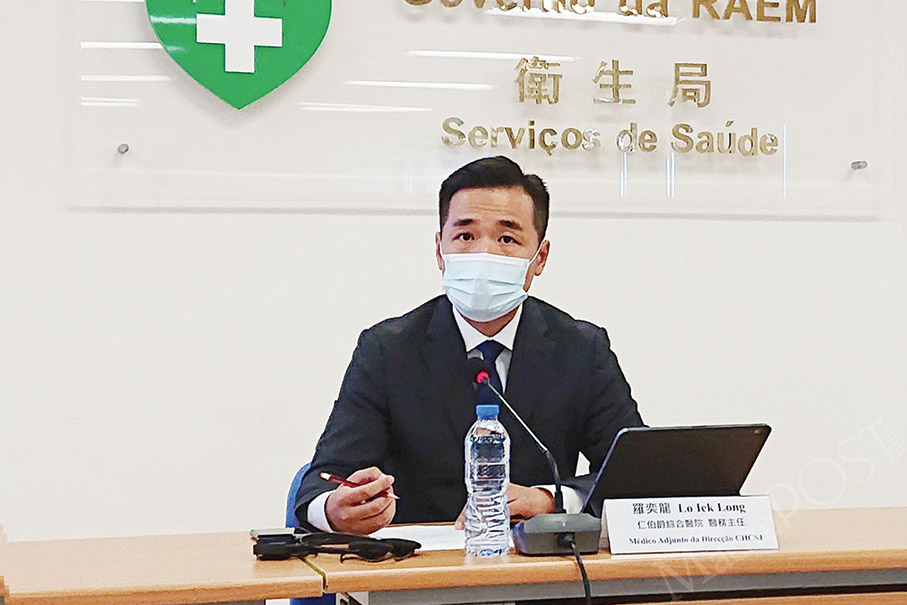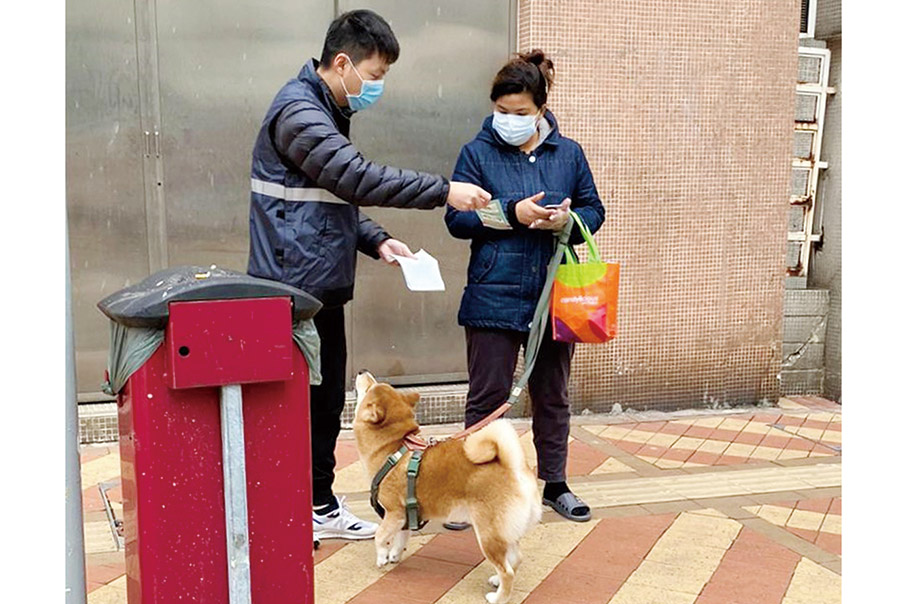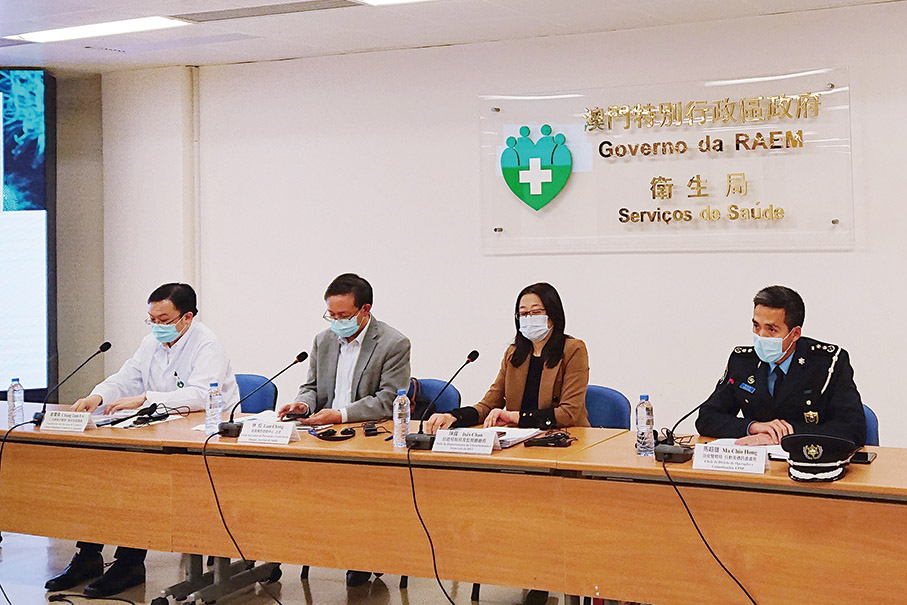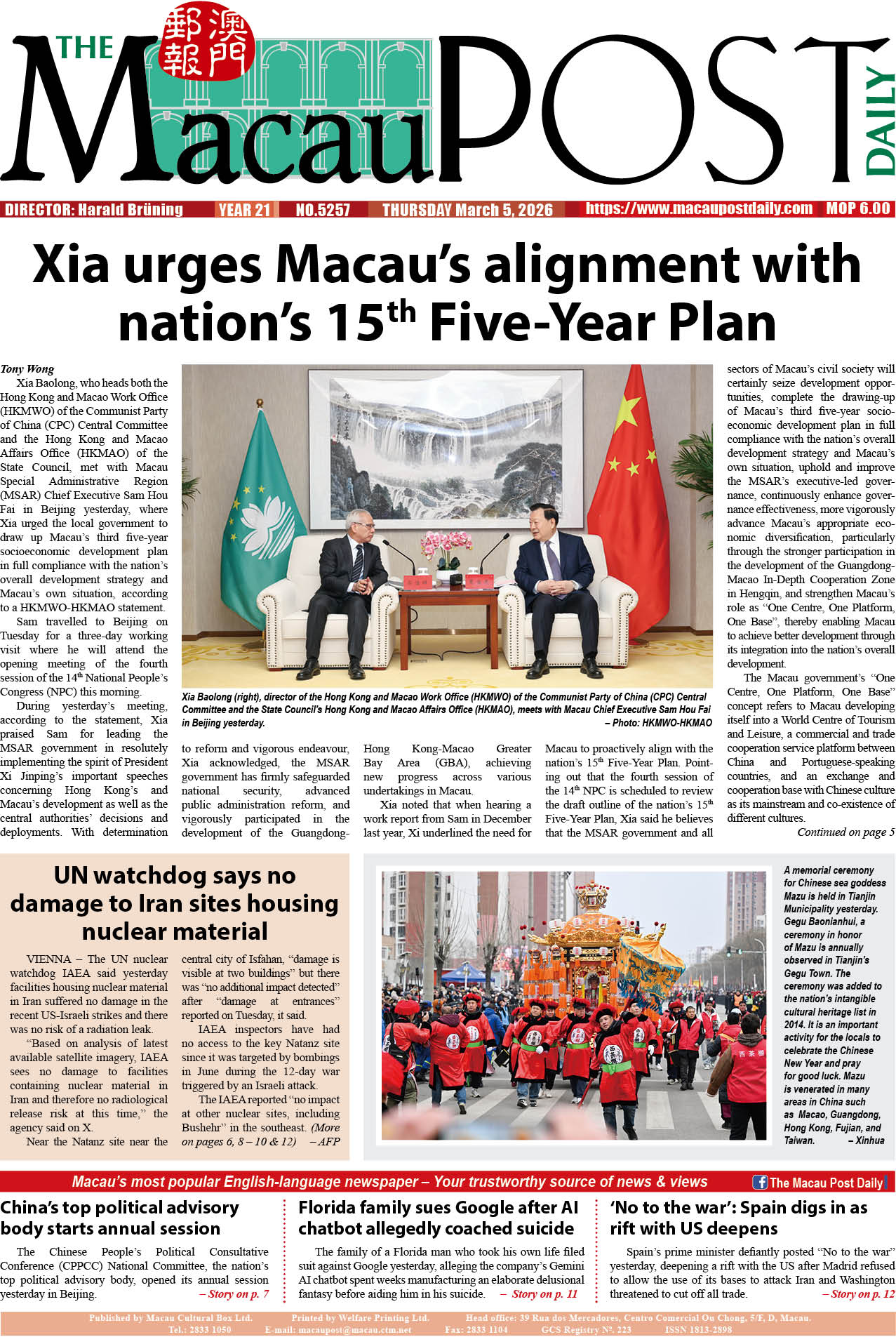Addressing yesterday’s press conference about Macau’s novel coronavirus (COVID-19) situation, Alvis Lo Iek Long, a clinical director of the public Conde de São Januário Hospital Centre, said that while the local government believes that the current fee of 180 patacas for its nucleic acid testing (NAT) scheme is “reasonable”, it aimed to further lower the fee, which was “Macau residents’ wish”.
Lo made the remarks when replying to a question from a reporter who asked whether the NAT fee that is part of the Macau government’s COVID-19 testing programme could be reduced considering that the NAT fee charged by officially recognised medical institutions in Zhuhai is significantly lower than in Macau.
The Macau government launched its NAT scheme on May 7 so that Macau-Zhuhai cross-border commuters can undergo their nucleic acid tests in Macau, in line with the gradual relaxation of border entry curbs and quarantine measures between the two cities.
Certain groups of Macau-Zhuhai cross-border commuters are currently exempted from the 14-day quarantine measure carried out by the Zhuhai government, such as Macau people who live in Zhuhai but work in Macau, Macau pupils and teachers who live in Zhuhai, and non-resident workers living in Zhuhai. They must show a NAT certificate proving that they have tested negative for COVID-19 within the past seven days when crossing the Macau-Zhuhai border.
In the Macau government’s NAT scheme, the first test is free of charge for all Macau residents and non-resident workers, but follow-up tests cost 180 patacas each. Cross-border pupils and teachers are exempt from the fee. However, all other kinds of travellers have to pay 180 patacas for each test – no fee exemption even for the first test.
The NAT programme’s testing station at the Taipa Ferry Terminal in Pac On opens daily between 10 a.m. and 7 p.m. The Health Bureau (SSM) could initially test up to 6,000 people per day in its NAT scheme, which is carried out in collaboration with a third-party testing institution – Kuok Kim (Macau) Hygiene Examination Company Limited, before its testing capability was raised last week to 16,000 people per day.
Four groups of local residents can also choose to undergo their nucleic acid tests at the public hospital under the local government’s NAT scheme, in addition to choosing to undergo the tests at the programme’s main testing station in Pac On. The four groups are senior citizens aged at least 65, minors aged 18 or below, people with disabilities, and those suffering from “special diseases” – namely infectious diseases, or are afflicted by drug addiction, tumours, and psychiatric diseases.According to mainland media reports, each nucleic acid test carried out at all officially recognised medical institutions in Zhuhai costs 75 yuan (84.60 patacas).

Alvis Lo Iek Long, one of the three clinical directors of the public Conde de São Januário Hospital Centre, addresses yesterday’s press conference at the Health Bureau (SSM) about the city’s novel coronavirus (COVID-19) situation.Photo: Tony Wong
Macau’s NAT fee much lower than in HK
During yesterday’s press conference, Lo pointed out that it is almost impossible for different regions in the world to have a similar NAT fee. Lo said that while some Macau residents regard Macau’s NAT fee as expensive compared with the one in Zhuhai, some Hong Kong reporters previously asked him why Macau’s NAT programme can charge a fee for each nucleic acid test that is much lower than the various fees charged by different medical institutions in Hong Kong.
According to Hong Kong media reports, each nucleic acid test carried out in officially recognised medical institutions in Hong Kong costs over HK$1,000, and the fee varies significantly among these institutions.
Lo pointed out that the local government has provided the Taipa Ferry Terminal as the venue for the third-party testing institution to carry out nucleic acid testing, which means that the institution does not need to pay a rental fee to run its NAT service. Lo also noted that police officers are deployed to the Pac On testing station to maintain order. In addition, a large-scale effect can be achieved as the third-party institution carries out a large number of nucleic acid tests per day, Lo said, adding that all these can help the institution significantly reduce its cost to run its business.
Lo said that the Macau government “has the same idea as residents” aiming for an even lower fee for each nucleic acid test. Lo said that while the local government currently needed to fulfil its agreement signed with the third-party testing institution, it would constantly negotiate with it for a lower NAT fee in the future.
Lo was quick to add that the local government considers the current NAT fee of 180 patacas for each test in the NAT programme “reasonable”, based on Macau’s current living standard and its residents’ average salary.
92.6 million facemasks sold
Meanwhile, Lo also announced during yesterday’s press conference that the 17th round of the government’s facemask purchase scheme will start tomorrow. The facemasks sold under the scheme are colloquially known as “government facemasks”.
Under the facemask purchase scheme, which was launched by the government on January 23, each local resident and non-resident worker is entitled to buy 10 facemasks at the fixed price of eight patacas every 10 days at designated outlets upon presentation of their original Macau ID card or work permit (informally known as a “blue card”). In each round, which lasts 10 days, parents or legal guardians are entitled to buy 10 facemasks for each child aged between five and eight, and five facemasks for each kid aged between three and four.
Lo said that 4.7 million “government facemasks” have been sold in the current 16th round – which ends today, adding that 92.6 million facemasks have been sold under the government’s facemask purchase scheme since its launch in late January.
Lo also pointed out that Macau has not confirmed a new COVID-19 case for three consecutive days. The Health Bureau confirmed a Filipino national holding a Macau ID card – the city’s 46th case – on Thursday night as having been infected with the novel coronavirus disease after he had returned to Macau from Manila via Hong Kong’s airport using the Macau government’s special ferry service.








